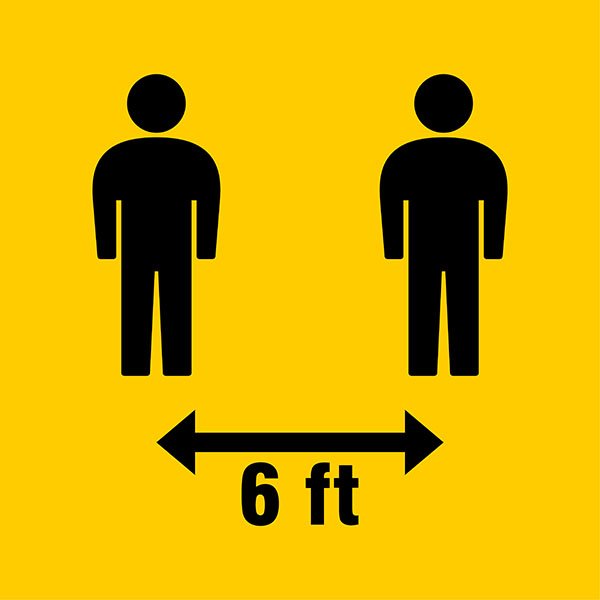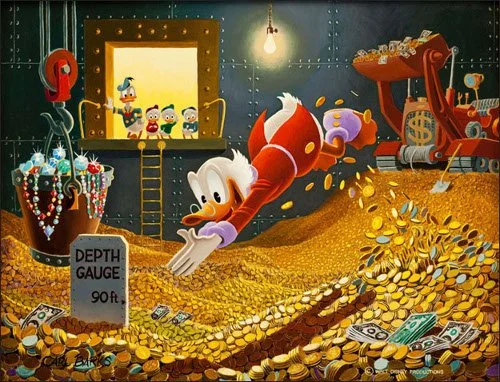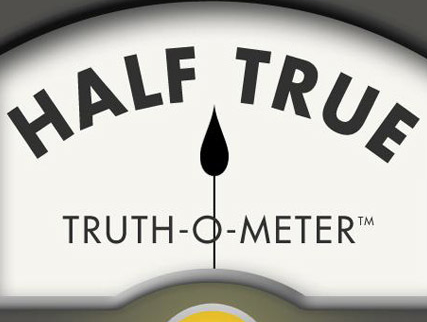We might be stunned to realize it, but the characteristic of nice never shows up anywhere in the Bible. God is never called nice. Christian virtue, the fruit of the Spirit, never includes nice. Jesus was never described as nice. There aren't even any biblical stories about someone being nice. So why then is it so prevalent in Christian sub-culture today? Or worse, how does being nice make us susceptible to being manipulated and programmed? How does the quality of nice—and neither Mark nor I are against nice people!—lead to resentment? How is nice compared to kindness? Come and think with us about how NICE is a marvelous way for Christians to get sucked into the Matrix.
451 Christians in the Matrix—Complacency
Life can be so hard! And so, human nature being wired as it is, we tend to unplug, tend to deal with life by being apathetic. In this episode on how Christians get caught and re-programmed in the Matrix, Mark and I think aloud together about how complacency devours both believers' faith and the Church's saltiness. God designed us all with muscles: physical muscles, mental, emotional, and spiritual muscles. Complacency makes all kinds of muscles get soft, weak, incapable. It's sort of like a tiny physical cell—a cell's walls can get so weak that external forces can penetrate and poisen the cell. Obviously, we don't want that to happen to believers, to anyone! So come think and laugh with us about job complacency, cultural complacency, and the complacency that so subtley drains our lives.
450 Christians in the Matrix—Propaganda
How many Christians do not have the mind of Christ because they've been primed and played by propaganda? Mark and I fear to know the percentage of such believers would be frightening, and our hearts break to witness how many are openly turning against the Gospel because of propaganda. The show's outline runs thus: A discussion of the American military's capture of Venezuela's Nicolas Maduro. The kinds of propaganda used during COVID. Defining propaganda. How sheeple play into propaganda. Church street-smarts? Different methods of propaganda including: firehosing, selective presentation, emphasizing one lens, info blizzards, A.I. deep-fakes, dishonest framing, bandwagoning and its opposite of gaslighting, fearmongering, and normalization. For each of those kinds of propaganda we talk through examples and their power. Come think and laugh with us!
449 Christians in the Matrix—Money!
In a hillside sermon King Jesus said, "It's easier for a camel to pass through a needle's eye than for a rich man to enter God's kingdom." What did he mean? Was he saying all money is evil? When 1 Timothy 6:10 says, "the love of money is the root of all evil," is God ruling out that we provide for our families? Is the ambition to work and produce and earn and contribute. . . is that ambition evil? In this conversation Mark and I process different angles about money, money and serving the Lord Jesus. Ed recounts how out-of-place he felt when he attended his wife's opulent work parties in Newport Beach. Mark talks about having earned a degree in insects but needing to go and provide for his family. When Jesus lived an austere lifestyle—"the Son of Man has nowhere to lay his head"—was he demanding we all live in such austerity? Come think and laugh with us about this important topic, important in a Christian worldview.
448 Christians in the Matrix—Lying and Half-Truths
Living here in the 21st century we are more awash in lies and half-truths than ever. How does one sift and sort what is emphasized, or reported? In this conversational episode Mark and I work through the kinds of lies that are perpetuated by politicians and media, but also the kind of subtle lies that infect and ruin a Christian worldview. Mark talks about what it was like to be on a couple of juries, one as a foreman, and how the attorneys would frame things so that the jurors would give their hearts to that specific argument. Ed talks about how to listen for what is not said and how what was constantly not said was important for his assessment of his own professorial position. We also note the kinds of things the major media do to shape and mold public opinion and public consciousness: under-report, selective-report, state half-truths, reframe instead of report. We don't want believers to be held captive by philosophies woven through with darkness. Come think and laugh with us!
447 Christians in the Matrix—Neo-Marxism
Today a massive chunk (is it 50%?) of the Church has been infiltrated by Neo-Marxist tenets. How, chiefly, has Neo-Marxism done that? Mark and I variously work through the tenets of Neo-Marxism, how it has evolved from Marxism, how it manipulates Christians, and the various ways it manifests in western culture. One of those ways is to take a Neo-Marxist value and paste a bible verse over it, to sort-of Christianize it, baptize it. But when pastors and others do that—assume Neo-Marxist terminology as true—they do not realize that they have already ceded foundational ground to a value system that at its root opposes God, Christ, the Gospel, and truth. In this conversational episode Mark and I also talk about the Neo-Marxist use of compassion, coercion, bitterness, resentment, and pacifism. The show caps off with the two of us processing a list of 10 Social Justice values. Come think and laugh with us!
446 Christians in the Matrix—Therapy Culture
More Americans than ever are going to therapists. Studies reveal that as many as 40 million adults see a therapist. Not surprising then is that prescription pharmaceutical drug use is also soaring. Mental-rest vacation days are becoming job-place normal. But is it all working? Suicide rates are soaring. Depression is everywhere. Emergency room visits for mental trauma are way up. Kids, and women in particular, are more miserable than ever. What to do?! Mark and I chew through the issue of therapy culture. We note how it can be beneficial, why it is beneficial. We also talk about possibilities for local churches to get involved, where and when they can. Should sermons be encouraging therapy sessions? Why, why not? And then, significant to the whole culture, is that the presuppositions of most Psychology programs are indifferent to or opposed to biblical teachings. Come and think and laugh with me and Mark about this intractable issue.
445 Christian in the Matrix—The Self
Christians and "o"rthodox churches would easily spot a rank heresy, but too commonly ignore a factor that sucks people into the godless Matrix: the Self. The Self is played to and pandered to at every level of western culture. So when the Church seeks to be relevant by pandering to the Self the mission is already thrown off. Relevancy is not the first (or eighth) critical element for Christian mission. My good friend Mark and I explore this element of the Matrix that overwhelms most every element of daily life. Our focus is not selfishness, which the Bible condemns. Our focus is the Self. In different ways we note how the Self dominates our lives. Jesus was relevant precisely by being irrelevant. Mark talks about how 1 Corinthians' model of one body many giftings can be healing balm to the dominance of the self. Ed talks about how the Matrix made he and his dad feel weird when driving a car without a face mask on during COVID, in Idaho! Come and think with us, and avoid being sucked down into the rocks of the river of the Matrix.
444 Christians in the Matrix—Trust
It's not an uncommon Q: can Christians be demon possessed? Along the same lines—deep conflict and spiritual disconnect—can a person be a Christian but continue to live and operate inside the Matrix? In this episode, my good friend Mark and I discuss: what is the Matrix? What does it do and why does it do it? How does it manifest? What are some daily, and recently in-yer-face, examples of the Matrix? We offer different analogies for how the Matrix operates in the minds of believers. Then we mix in the element of trust. Why do you trust whom you do? Should we all operate in a hermeneutic of suspicion? Is it non-charitable for believers to ask questions for and from leaders when the Bible teaches that all people are sinful? And then we get even more particular: what anthem did Pink Floyd sing that is today a bit farcical given Roger Waters' public disposition? What's the difference between the deceived and the deceitful? Finally, on what basis, or by what grid, should we trust people? Come and think and laugh with me and Mark as we work through and around the critical topic of trust.
443 Living a Missional Life, Convo w/Miles Galla-Rini
For the last 40 years or so Miles Galla-Rini has been a believer. But he wasn't always committed to a walk in Christ. In this one-on-one conversation he recounts his various struggles with drugs and despair and purposelessness, and then how Jesus Christ turned his life around. But it wasn't a one-time deliverance, a once-and-done crisis event. Following Jesus, for Miles, was and is a daily commitment. Today he runs his roofing company in So Cal and uses it as an avenue for missional engagement. Oh, and we also talk about spiritual gifts and their operations. Come and think with us about a personal pursuit of Jesus.
442 Is all Pride Bad?, Convos w/Mark
Augustine wisely argued that pride is the root of all sin. That's a solid interpretation of biblical teaching but is that all there is to be said on the matter? Obviously not. It is not wrong to exercise one's gifts—or agency or abilities—to the good of one's family, neighbors, or society. So we need to be theologically aware about pride but recognize that a lack of ambition is detrimental for who and what a person is. Here's another angle: why is government so consistently inefficient? Because there is a lack of personal ownership in what gets done; if no one is finally responsible it sows indifference through the system. What the system could use is a dose of personal pride, pride in one's efforts. Still more, when Jesus said, "take up your cross and follow me" did he mean we should kill the self? Is that the Christian goal, dead selves? Again, let's be more accurate, careful, and flexible. Mark recounts pride of homeownership. Ed recounts having spoken about self-esteem at a college women's dorm floor meeting. Come, think and laugh with us about pride and the Christian worldview.
441 What about the Good?, Convos w/Mark
Can Christians be good? Can non-believers be good? Mark and I work through questions like these inside a biblical and Christian worldview. There is an established and severe piety that says human beings are only evil, and there is a kind of popular piety that say I can never be good enough. How should we think through these issues? What kinds of patterns in life can we recognize that go toward the good? And then, just what is the Christian mission? Evangelism alone? Or is doing good, even beautiful, things also part of what the Lord has for us? In that work do we have to be perfect for the action to be blessed of God? How perfect? Why? Come laugh and think with us as we work through this oft-misunderstood topic, goodness.
440 Christianity E & W, but mostly East!
What is Eastern Orthodoxy? How does it compare to Western Christianity? Do the Orthodox follow the Pope? In this requested episode (thank you, Hannah!) I describe distinctives of the Eastern Orthodox tradition of Christianity. When did the West and East split? Why did they split? Can Orthodox priests marry? Are Orthodox patriarchs and bishops allowed to marry? How do the Orthodox want a congregant to feel during a Liturgy (service)? What is the purpose and effect of icons? What do the Orthodox teach about the process of becoming like Christ? As we ask and answer these questions I am also asking listeners to wonder, what is the baseline of being a Christian? Is it social service and/or social justice? Is that baseline doctrine and having a uniform and tidy theological system? Is that baseline that one fervently studies the Bible? Come think with me about being a Christian, in general, and what Eastern Orthodoxy is, in specific.
439 God, the Devil, the Flesh (Conversations w/Mark)
Across a Christian's daily life different agents—God, the devil, and human flesh—play a role in what we do, or don't do; and those three definitely play a significant role in how we process our own misery. Mark and I discuss how daily, even little and constant, decisions shape our souls and define our character. In that process of becoming it is easy to blame the devil for misery or chaos, but as often as not we have made a whole trail of decisions that move us into situations that are uncomfortable. As examples Mark and I discuss: eating donuts, the nothingness of the Minneapolis Catholic-school murderer, and the recent "give me that baseball!" Karen-acting-out public embarrassment. What does it mean to live by the Spirit? Is the presence of God our reward for holy living or the source of our holy living? We explore all kinds of daily examples of pursuing Christ. Oh, and. . . the Bible is far more sophisticated than other world religions when it comes to understanding the causes of misery and suffering. How is that so? Come think and laugh with us!
438 Charlie Kirk Aftermath—Dark Clouds Forming?
The effects of Charlie Kirk's public murder continue to emerge. What are the patterns we—my friend Mark and I—are recognizing that follow in the wake of Kirk's assassination? Was the murderous shooter just a lone nut? Is society's Overton Window closing? Why is the Left inciting such violence? And then here's one for you: when should you move to another town or state? Is it a lack of trust in God to pick up and move? (Why did Ed's ancestors move out of Eastern Europe?) How does false piety get in the way of wisdom about staying or leaving a given place? At bare minimum we are seeing a public hatred of authority and an intentional Balkanization of America (and the church) taking place. Will Charlie Kirk's murder cause the frog to leap out of the boiling kettle? Come think and laugh with me and Mark!
437 Daily Life—Fighting Spirit vs Resting Spirit
The Scriptures are full of admonitions both to fight for the Lord and his ways and to rest in the Lord. But what does that look like in everyday life? When to fight? When to rest? And even worse for everyday-Sunday believers, what to do when a syrypy-goo is poured thick over all that?! We talk through everyday realities between the poles of fighting and resting, then we also ask what it means to fight (or whether to fight) for the health of culture and sign. On the one hand we're called to be gracious (which gets corrupted to mean "we must be nice!"). On the other hand we're called to be faithful. What did seizing the problem mean for Mark as a mailman? What did seizing the problem mean for Ed as a professor? What did Dietrich Bonhoeffer have to say about what it means to be a Christian in the midst of a fracasso? Come think and laugh with us!
436 Charlie Kirk—History is Pivoting
I was only 7 years old when both MLKJr and RFK were assassinated in 1968. (I've been to the MLKJr Memorial and Museum in Memphis.) But I do still recall the swirl, energy, anger, the horror people felt from their assassinations. Those two mens' respective murders propelled the Civil Rights movement into dominance. No less is happening today with the assassination of Charlie Kirk three weeks ago. And this season of national grief is impelling a revival in the Church. But it won't be a revival like we've seen in the past. No, this revival both stems from and will passionately move toward a cultural and political effect. There's no more "me and my boyfriend, Jesus" kind of private Christianity that will seize our nation's attention. To that end, or flowing from that energy, I reference the method of leadership suggested by Karl Barth. He was a German theologian who criticized the Nazis, and I believe his suggested m.o. is brilliant grist for today's small "o" orthodox, confessing, Christ-glorifying Church. We are in a season of epic historical transformation. Will the Church tap into that, or will the American Church continue to duck and hide? Come think and laugh with me.
435 Charlie Kirk Aftermath—Moral Equivocation
Like me, you have seen and heard the folks who are either celebrating or giving a pass to Charlie Kirk's assassination. That celebration's been pretty obvious. More subtle are the attempts to cause moral confusion. And that confusion comes specifically through both moral equivocation and the drawing of false moral equivalencies. What do those two means look like? I give examples. How do some pastors and churches fall in with equivocation and false equivalences? Why do they do that? I also mention how one Southern California university has been dealing with the Charlie Kirk murder and what it says about their values. We are now in a season of profound separation and crystallization. Is that good or bad? What do I do with the calls for unity that are now beginning to sound? Come and think with me in this formative and historic season.
434 Charlie Kirk Assassination
On Wednesday, September 10, a prophet was assassinated in Utah. That public horror was an archetype of desecration for us all. Truth is, Charlie Kirk was a prophet. What do I mean by that? What does the Bible show us about prophets? What do I think Charlie's public murder represents about where we are in Church history? What do I, building out of Charlie's vision, believe is the way forward for Church mission? Charlie's vision was filled with Christ, an eternal perspective, love, and family; his was a celebration of what it meant to be male and female and children and families. How can we build on that? Particularly, after spilling my emotional guts out, I explain what I believe this all means for Church mission vis-å-vis Progressivism. War has been declared on the Church, the Gospel, Christ, and God by Progressivism. How should the Church respond? How should you respond?
433 Will the Earth Last Forever?
Will the Earth last forever? It's an interesting question that goes into several areas: worldview (bible and theology vs. science), what it means to be human, what the Eschaton (resurrection life) will be like, biblical prophecies, the nature of Jesus' own resurrection, the doctrine of creation, God's nature, and the power of God. With my friend, Mark, I discuss pertinent biblical passages, formative biblical teachings, the reality of continuity and discontinuity in Jesus' resurrection. Mark has a minor degree in horticulture, so I ask him what would planet Earth be like if all the plants were finally burned up? So many Christians today look at the earth and think, "oh well, it's all going to burn anyway!" But really, is it? Is that the biblical portrayal? Let's build our hope together as we think about the future of our planet.


















